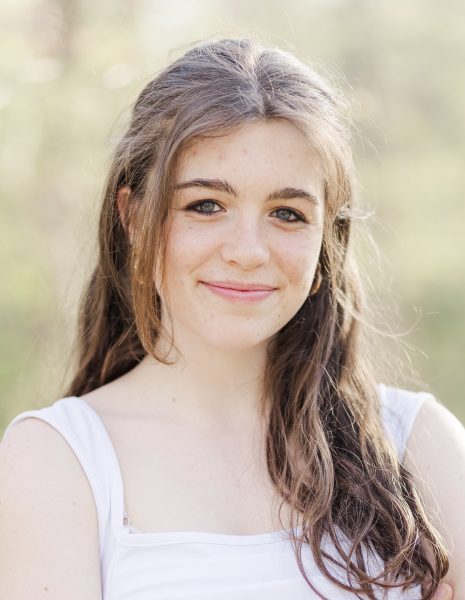In the article “Religion at the U: Students’ Experiences With Faith On Campus,” The Daily Utah Chronicle surveyed students on their thoughts and interactions with faith on campus. Multiple students mentioned wanting interfaith associations and resources for those experiencing religious trauma or faith crises.
After the article was released, two organizations contacted The Chronicle to discuss the importance of secular communities and judgment-free conversations between often-divided groups. These organizations are the Spiritual Wellness Program and the Student Interfaith Coalition.
Spiritual Wellness Program
The Spiritual Wellness Program — a component of the university’s Student Wellness Program — offers students the opportunity to attend workshops, lectures, events and one-on-one meetings to learn about faith, spirituality and mental health, specifically about a faith crisis or religious trauma.
The Rev. Cindy Solomon-Klebba is a PhD student and instructor at the Transform and Undergraduate Studies departments, and the spiritual chaplain for the U’s Spiritual Wellness Program.
“Spirituality is not necessarily about religion … it’s a component of mental health,” Solomon-Klebba said. “I’ve had students who are just in pain … all they can do is hang on.”
Solomon-Klebba grew up in Oklahoma as a member of the Pentecostal Church and later the Church of Christ. Now, she is an ordained clergy in Metropolitan Community Churches and a former pastor for one of their local congregations.
She said she can relate to those struggling with faith and isolation. These experiences encourage her to help those in similar situations.
“[My family has] had conversations about whether we should move from Utah,” Solomon-Klebba said. “It’s not the safest place in the world. We’re queer. At the same time, I have these students who need me, and I’m in a position now, finally, to be able to help them so I’m not willing to abandon them. I feel like we’re on the cusp of being able to do something really important here.”
She discussed the university’s need for more emphasis on student health. While there are mental health resources on campus, Solomon-Klebba calls for the university to take more “risks” with conversations, as it has an impact on academic success as well as mental health.
“I would like to see the kind of resources that we devote to other areas make this as important, because this is what your life’s about,” Solomon-Klebba said. “Yeah, so athletics are important. Business school is important. How about whether or not you’re healthy?”
Solomon-Klebba encourages students who are struggling with their mental health to prioritize happiness, not just education.
“Do what you love to do, whatever that is,” Solomon-Klebba said. “And if what you love to do changes, then change it. You know, there’s nobody’s gonna spend the last 20 minutes of life going, dang, I wish I’d worked another day.”
The Spiritual Wellness program has a website and can be emailed at spiritualwellness@utah.edu to request appointments. The Spiritual Wellness Program is located in Room 350 of the Student Services Building. Solomon-Klebba holds office hours from 3 p.m. to 5 p.m. on Mondays in Room 378.
Student Interfaith Coalition
Matthew Hyde is a pre-med student and the president of the Student Interfaith Coalition at the U.
Hyde started the organization in August 2024 because of current events and a lack of prominent interfaith groups on campus.
“I saw there were some ways that we could work on communication and dialogue between different faith-based groups for communities, especially being in Utah because [the culture] is just an added measure of weirdness,” Hyde said.
The Student Interfaith Coalition connects different religious groups through events, panels, and safe and respectful dialogue. The organization hopes to spread the importance of productive conversations throughout campus.
“People don’t know how prevalent people of faith are, and people of faith probably don’t know how prevalent secular individuals are,” Hyde said. “A lot of people on campus can change and just open their mind to respecting each other and their own choices and their own beliefs and celebrating pluralism.”
Hyde is an active member of the Church of Jesus Christ of Latter-day Saints but grew up in Maine, a largely non-religious state. He said his experiences give him a perspective different from his Utah-born peers.
“Definitely growing up where I did, you never have the horror stories that you have here in Utah where, like, someone doesn’t let you play with their kids because you’re not a member of the church or something,” Hyde said. “[Faith] was not a deciding factor when it came to seeing someone as a role model … mentor or as a good person.”
Additionally, Hyde felt this organization to be necessary due to his own experiences of receiving judgment for his faith, which were often based on widespread stereotypes of the Church.
“I’m my own individual,” Hyde said. “I absolutely believe what I want to believe, and I can think what I want to think.”
He said assumptions often go both ways and no one is immune to “narcissism of small differences,” the Freudian idea that people who share a lot in common will focus on minor differences between them, creating hostility and conflict.
“I still feel my own biases or my own inclinations based on those behaviors to come up in myself, and I work to break them down,” Hyde said. “There are people who feel disillusioned by the Church and feel betrayed … and people who don’t understand those people at all. I think both of those people can do some work to at least take baby steps.”
Hyde also mentioned that the coalition is adamantly against conversion attempts. He wants students to know that their only goal is to open people’s minds to other faiths and facilitate productive conversations.
“Even if it is just like one or two people who do have their eyes open to say, ‘Oh, we should be better neighbors to everyone, you know, of any faith.’ I think it’s successful even if we just do that,” Hyde said.
To contact the Student Interfaith Coalition, students can use utahinterfaith@gmail.com or @utahinterfaith on Instagram. Registration is through Campus Connect.



